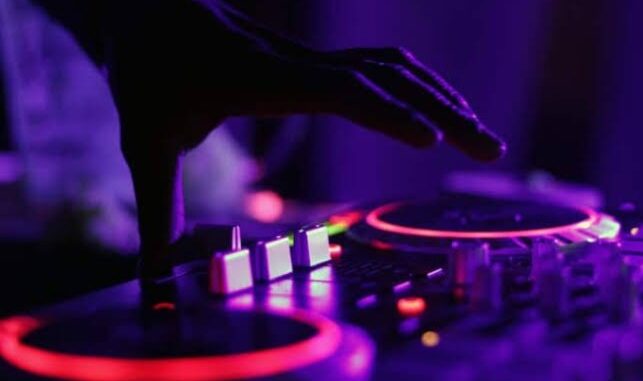
The Origin and Global Influence of South Africa’s Iconic Sound
Origin of Amapiano, the electrifying and soulful genre that has taken the global music industry by storm, originates from one country: South Africa. This genre has grown from an underground movement to a mainstream powerhouse, captivating audiences worldwide with its deep basslines, jazzy piano melodies, and infectious log drum beats.
In this article, we explore how South Africa owns Amapiano, the history behind its rise, its cultural significance, and how it has transcended borders to become a global phenomenon.
The Origin of Amapiano: A South African Creation
Amapiano, which translates to “the pianos” in Zulu, emerged in the early 2010s in South Africa’s townships, particularly in Pretoria and Johannesburg. The genre is a fusion of deep house, jazz, Kwaito, and lounge music, featuring prominent piano chords, heavy percussion, and signature log drums.
Key Elements That Define Amapiano
Log drum beats – The heartbeat of the genre
Deep house influences – A smooth, rhythmic foundation
Jazz-infused piano melodies – Giving it a soulful touch
Slow to mid-tempo grooves – Creating a relaxed but danceable vibe
Amapiano was initially popularized through underground parties and social media platforms, with young DJs and producers sharing their tracks via WhatsApp and SoundCloud. Over time, it exploded into the mainstream, dominating South African airwaves and dance floors.
South Africa: The Origin of Amapiano
South Africa owns Amapiano because it was born, nurtured, and perfected within the country’s vibrant music culture. Unlike other genres that might have evolved from multiple regions, Amapiano is deeply rooted in South African townships, where it became a voice for young, aspiring musicians and producers.
South African Producers Who Pioneered Amapiano
Several South African producers have been at the forefront of Amapiano’s rise, including:
Kabza De Small – Dubbed the “King of Amapiano,” he played a massive role in shaping the genre.
DJ Maphorisa – A versatile producer who helped take Amapiano to mainstream audiences.
Major League DJz – Known for blending Amapiano with international sounds.
MFR Souls – One of the early pioneers who contributed to Amapiano’s distinctive beats.
Vigro Deep – A young producer pushing the boundaries of the genre.
These artists, among others, have solidified South Africa’s claim to Amapiano by continuously innovating and exporting the sound to the world.
The Cultural Significance of Amapiano in South Africa
Amapiano is more than just music in South Africa; it is a movement, a lifestyle, and a cultural expression of youth resilience, creativity, and aspiration.
Why Amapiano is Culturally Important
Empowers young artists – Many independent musicians have risen to fame through Amapiano.
Reflects South African township life – The music tells stories of everyday struggles and celebrations.
Drives social interaction – Amapiano dance challenges and viral trends have brought people together.
Bridges generations – It appeals to both young and old audiences, making it a unifying force.
South Africa’s streets, clubs, and social gatherings are incomplete without the vibrant sounds of Amapiano. The genre has created economic opportunities, turning unknown DJs and producers into international superstars.
The Global Expansion of Amapiano
Though South Africa is the birthplace and true owner of Amapiano, the genre has now found a home in countries worldwide. Nigerian, UK, and American artists have started incorporating Amapiano elements into their music, expanding its influence beyond Africa.
Countries Adopting Amapiano
Nigeria – Artists like Davido and Burna Boy have embraced Amapiano, blending it with Afrobeats.
United Kingdom – UK-based DJs and clubs have popularized the sound within the diaspora.
United States – American producers are experimenting with Amapiano beats in R&B and hip-hop.
Europe & Asia – The genre is being played at festivals and clubs, gaining mainstream attention.
Key Global Amapiano Collaborations
“Ke Star Remix” – Focalistic ft. Davido (Nigeria)
“Champion Sound” – Focalistic & Davido
“Amapiano” – Asake ft. Olamide (Nigeria)
These international collaborations have further solidified South Africa’s ownership of Amapiano, as global artists recognize its authenticity and originality.
The Future of Amapiano and South Africa’s Role
The future of Amapiano remains bright, with South Africa continuing to lead the way in innovation and creativity within the genre.
Trends Shaping the Future of Amapiano
International Amapiano Festivals – South African artists are headlining global music festivals.
Cross-genre fusions – Amapiano is blending with Afrobeats, hip-hop, and R&B.
Streaming Growth – Platforms like Spotify and Apple Music are amplifying Amapiano’s reach.
More global collaborations – Expect to see more international artists working with South African producers.
South Africa’s cultural ownership of Amapiano is undeniable. The country’s artists, DJs, and producers will continue to define and shape the genre, ensuring it remains deeply connected to its South African roots.
Conclusion: South Africa – The Undisputed Origin of Amapiano
There is no doubt that South Africa owns Amapiano. The genre was born in its townships, perfected by its producers, and embraced by its people before taking over the world. While other countries may adopt and incorporate Amapiano elements into their music, South Africa remains the heart and soul of the movement.
As Amapiano continues to evolve and reach new heights, one thing remains clear: South Africa is, and will always be, the true home of Amapiano.
Stay updated with more information here!
Watch music videos here.
Leave a Reply